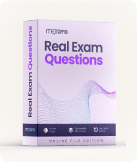IAPP CIPP-A - Certified Information Privacy Professional/Asia (CIPP/A) Exam
Page: 1 / 19
Total 93 questions
Question #1 (Topic: Exam A)
In the Asia-Pacific Economic Cooperation (APEC) Privacy Framework, what exception is allowed to the Access and Correction principle?
A. Paper-based records.
B. Publicly-available information.
C. Foreign intelligence.
D. Unreasonable expense.
Answer: B
Question #2 (Topic: Exam A)
How can the privacy principles issued in 1980 by the Organisation for Economic Cooperation and Development (OECD) be defined?
A. Guidelines governing the protection of privacy and trans-border data flows issued in collaboration with the Federal Trade Commission.
B. Guidelines governing the protection of privacy and trans-border data flows of personal data in states that are members.
C. Mandatory rules governing the protection of privacy and trans-border data flows within the European Union.
D. Mandatory rules governing the protection of privacy and trans-border data flows among binding member states.
Answer: B
Question #3 (Topic: Exam A)
Which concept is NOT an element of Cross Border Privacy Rules (CBPR)?
A. Enforcement by Accountability Agents.
B. Self-assessment against CBPR questionnaire.
C. Consultation with Privacy Enforcement (PE) Authority.
D. Dispute resolution via the Accountability Agent's compliance program.
Answer: B
Question #4 (Topic: Exam A)
What term is defined by the European Commission to mean any data that relates to an identified or identifiable individual?
A. Personally identifiable information.
B. Sensitive information.
C. Personal data.
D. Identified data.
Answer: C
Question #5 (Topic: Exam A)
What personal information is considered sensitive in almost all countries with privacy laws?
A. Marital status.
B. Health information.
C. Employment history.
D. Criminal convictions.
Answer: B
